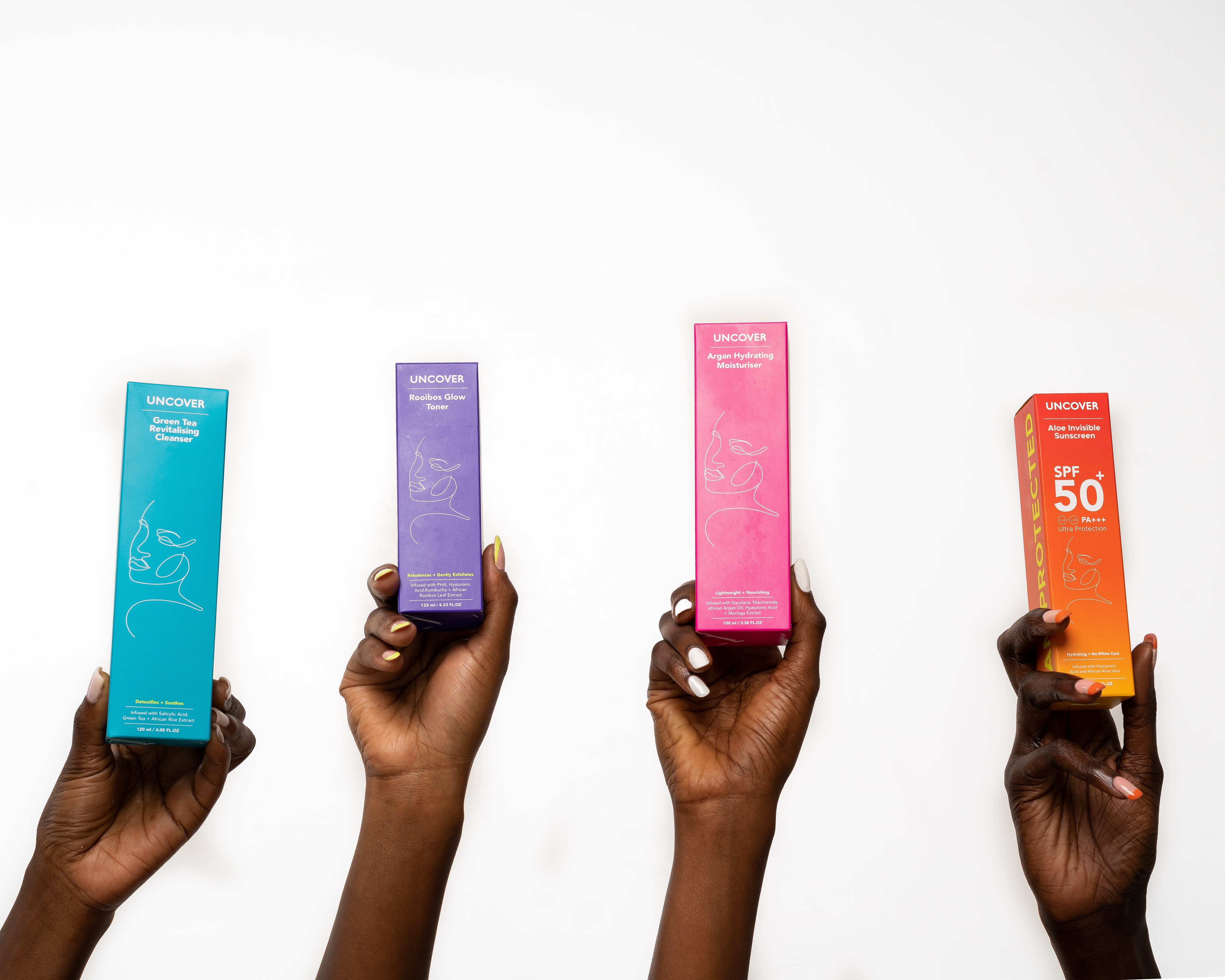Africa’s beauty and personal care market is growing, accelerated by its burgeoning young and fashion-conscious population, increased spending power and urbanization. The market’s potential has in recent years attracted major brands, with Fenty Beauty by Rihanna and LVMH being the latest entrants.
Niche local brands are also emerging to offer tailored beauty and skincare products. Kenya-based Uncover Skincare is one of them and it seeks to revolutionize the sector through data-led manufacturing that is aligned with the needs of the modern African woman.
Backed by a $1 million seed funding, Uncover is scaling its operations in Kenya and expanding to Nigeria in January. This is after recently introducing a new range of skin products in the market, with plans to launch more next year. Its products are sold through its online platform, on marketplaces and in the stores of partner brands.
“We are using the funding to launch more products, go into additional markets and also double down on our tech and data to effectively produce, reach and market to our audience,” Uncover co-founder and CEO Sneha Mehta told TechCrunch.
FirstCheck Africa, Samata Capital, Future Africa and IgniteXL participated in the round, in addition to angel investors ex-SokoWatch COO Kwenhui Tawah, and ex-L’Oréal executive and current WPP Scangroup CEO Patricia Ithau. The new funding brings the total amount raised by Uncover, since launch in 2020, to $1.225 million.

Mehta co-founded Uncover with Jade Oyateru (COO) and Catherine Lee (advisor), who were inspired to build a data-driven, digital-first health and wellness brand for the African woman by leveraging their experience and expertise.
Mehta has over 10 years’ experience helping businesses scale across Africa, while Oyateru is a nutritionist and consumer goods expert. Lee is an economist turned filmmaker.
Uncover was launched after incubation at Antler. It uses African botanicals and outsources its manufacturing to Korean original design manufacturers, who they say ensures its products are “healthy, safe, affordable and effective.”
“Our production happens in Korea (one of the world’s biggest beauty markets), where we are leveraging the best technology, labs and scientists in the world who understand stability testing, safe ingredients and formulations. We are able to deliver because women in our community have graciously provided information and tried our products, to help us formulate specifically for this market,” said Mehta.
The startup also offers virtual consultations through an in-house esthetician, and produces skin-tertainment content to reach more users, and recently introduced a skin quiz for personalized recommendations.
“I have experienced the lack of safety in products firsthand, the lack of information and the feeling of being stuck. This is part of the reason why we are building these tools for people to get personalized information, and advice including diet tips.”
Mehta says since launch the startup’s revenue has grown 20-fold, buoyed by the growing demand for its products, and the community it continues to build.
“We have had incredible traction since, and our community has grown from zero to about 60,000 women in Kenya in two years… we have built brand awareness, loyalty and our values of education and knowledge and empowerment have been established at the market,” she said.
Uncover hopes to continue building and strengthening this community, starting with Kenya and Nigeria, which are the next major beauty and personal-brand markets in the continent after South Africa.
How Parfait is using AI to upend the $13B custom wig industry
Summer International uses social media data to launch new beauty brands
Upgrade gives hair stylists tools to market, sell custom wigs from one marketplace































Comment